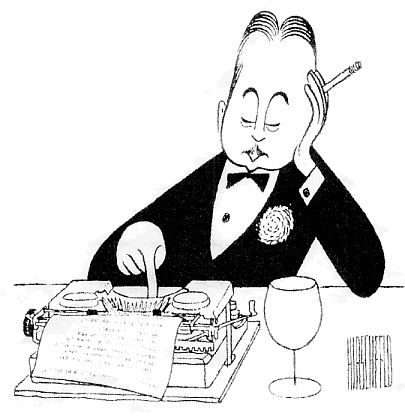At any rate, the tendency seems to be toward an increase in bigamy.
XXII—THE REAL WIGLAF: MAN AND MONARCH
Much time has been devoted of late by ardent biographers to shedding light on misunderstood characters in history, especially British rulers. We cannot let injustice any longer be done to King Wiglaf, the much-maligned monarch of central Britain in the early Ninth Century.
The fall of the kingdom of Mercia in 828 under the the onslaughts of Ecgberht the West-Saxon, have been laid to Wiglaf’s untidy personal habits and his alleged mania for practical joking. The accompanying biographical sketch may serve to disclose some of the more intimate details of the character of the man and to alter in some degree history’s unfavorable estimate of him.
Our first glimpse of the Wiglaf who was one day to become ruler of Mercia, the heart of present-day England (music, please), is when at the age of seven he was taken by Oswier, his father’s murderer, to see Mrs. Siddons play Lady Macbeth. (Every subject of biographical treatment, regardless of the period in which he or she lived, must have been taken at an early age to see Mrs. Siddons play Lady Macbeth. It is part of the code of biography.)
While sitting in the royal box, the young prince Wiglaf was asked what he thought of the performance. “Rotten!” he answered, and left the place abruptly, setting fire to the building as he went out.
Beobald, in citing the above incident in his “Chronicles of Comical Kings,” calls it “an hendy hap ichabbe y-hent.” And perhaps he’s right.
Events proceeded in rapid succession after this for the young boy and we next find him facing marriage with a stiff upper-lip. Mystery has always surrounded the reasons which led to the choice of Princess Offa as Wiglaf’s bride. In fact, it has never been quite certain whether or not she was his bride. No one ever saw them together.1 On several occasions he is reported to have asked his chamberlain who she was as she passed by on the street.2
And yet the theory persists that she was his wife, owing doubtless to the fact that on the eve of the Battle of Otford he sent a message to her asking where “in God’s name” his clean shirts had been put when they came back from the wash.

